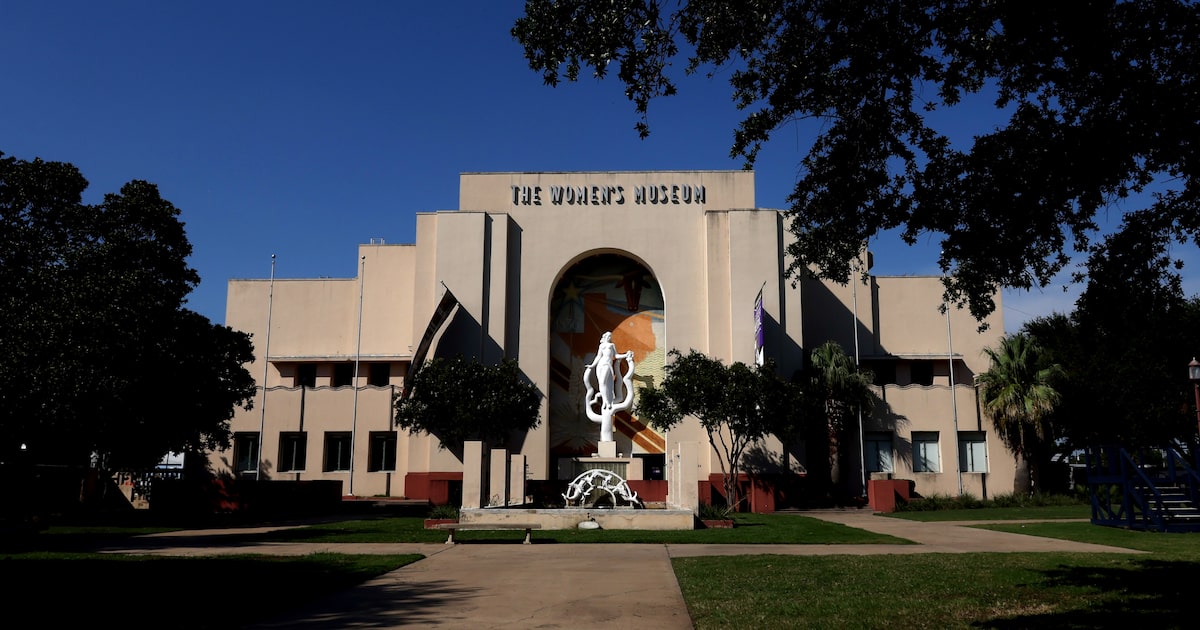There aren’t too many contracts approved at Dallas City Hall that lead to jubilant applause echoing through the council chambers.
But that was the scene in October 2018, the moment after a unanimous Dallas City Council voted for an agreement that many people, including this editorial board, believed would save the greatest historical treasure our city has, Fair Park.
The vote was the culmination of a grinding yearslong process that had a clear and seemingly smart goal: privatize the management and operations of the 277-acre park and the 1936 exposition buildings that have become symbolic of the city itself. Get it out of City Hall’s hands and into the hands of people who know how to make money out of a venue. Let the park pay for itself.
What no one clapping that day knew was that the deal was doomed from the moment it was born. It could not succeed because of a deeply flawed structure involving a for-profit operator, an untested nonprofit and a city government left in the dark too long and all but powerless to intercede early enough to arrest an ongoing and damaging failure.
Opinion
Now, almost seven years later, the city is back in charge at Fair Park. Its already fragile buildings, fountains and grounds are worse for the wear. Reputations are battered and lawsuits all but assured. Meanwhile, no one is any closer to a plan for what we can or should do next to stop a major piece of our past from decaying away.
What happened to Fair Park matters now because we still need a path forward. We need a plan that will ensure the park generates enough revenue to sustain itself, that builds confidence in donors to give generously to protect and enhance it, and that doesn’t repeat the failures of the past.
So it all raises the question: What went wrong?
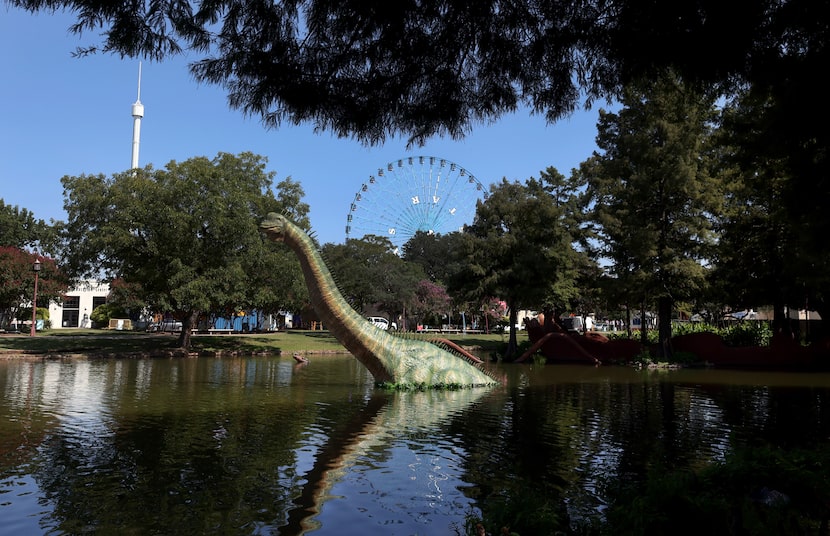
A giant dinosaur structure emerges from the waters of the Lagoon as The Star ferris wheel waits to take its turn as preparations are under way at Fair Park for the opening of the 2025 State Fair of Texas.
Steve Hamm / Special Contributor
Privatize the park
Even before he became mayor in 2011, Mike Rawlings had a vision that Fair Park could benefit from a private management structure the way the Dallas Zoo and Dallas Arboretum had.
The zoo, in particular, stood as an example of a city asset that went from struggling to thriving when a nonprofit operator replaced the city bureaucracy.
Why couldn’t the same thing happen at Fair Park?
“I said look, we’ve got to do something with Fair Park,” Rawlings recalled in a recent interview. “It’s just going to die on the vine being just funded by the city. Nothing’s going to happen.”
In 2015, Rawlings tapped a Dallas business titan, former Hunt Oil CEO and chairman Walt Humann, to lead the planning to turn Fair Park’s day-to-day operations over to a private foundation, one that most City Hall watchers understood would be overseen by Humann himself.
Humann, an MIT and Harvard graduate with a rock-solid reputation for civic stewardship, took on the job with a realist’s eye for Fair Park’s serious needs. After more than a year of study, he came up with a plan and a price: a management fee that would scale up to $23 million a year. Oh, and bond money, too.
City Hall gulped. It was already spending around $11 million a year to maintain the park.
And then the opposition rose. J. McDonald “Don” Williams, the former chairman of Trammell Crow Co. and a Dallas business legend on par with Humann, had long had his own plans for Fair Park. Williams wanted some of Fair Park’s buildings repurposed for social programs like education and workforce training. He objected to Humann’s plan because it cut against Williams’ desire to see the footprint and influence of the State Fair of Texas diminished.
There was another, bigger problem. It occurred to Rawlings’ political opponents on the City Council that it might not pass muster to just hand over the operations of Fair Park without maybe seeing if there were competing bids. A new city attorney took one look at the matter and agreed. Fair Park had to go to bid.
There is no question that was the right legal call. A bid was the proper thing to do. But for all intents and purposes, that spelled the end of the Humann proposal and the beginning of the mess we are in.
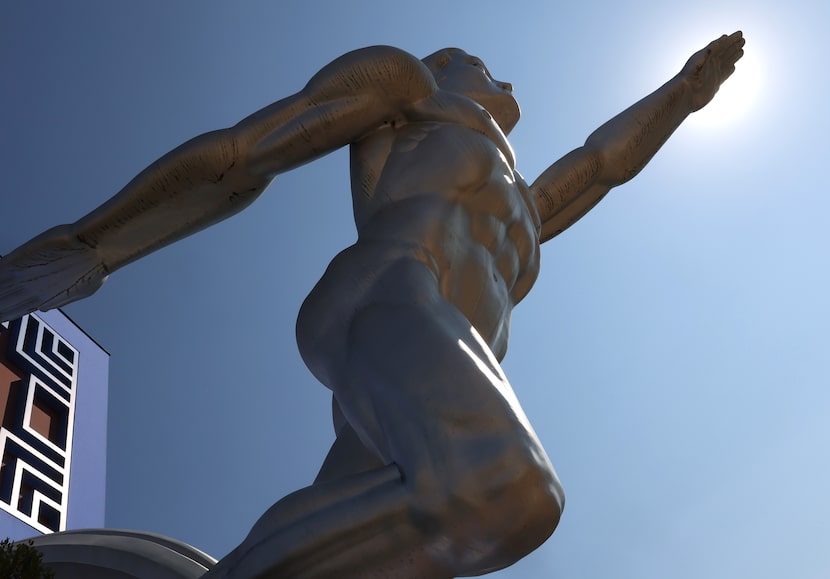
Created by Lawrence Tenney Stevens in 1936, “The Tenor” sculpture was originally created for the 1936 Centennial celebration. The fate of the original remains a mystery. The sculpture currently on display was recreated by David Newton in 2009.
Steve Hamm / Special Contributor
A lopsided match
City Hall wanted this to go without a hitch. It hired an experienced consulting firm from Chicago to help guide the bidding process.
“The process was good — on paper,” said Ken Smith, a South Dallas nonprofit leader who worked side by side with Humann to shape his plan.
Three bids came in. One was from Humann, who returned with another version of his plan and a more modest price tag.
Another was a longshot from Oak Cliff developer and preservationist Monte Anderson.
The third was intriguing from the start.
It came from Spectra, a venue operator from Philadelphia.
Backed by communications giant Comcast, Spectra had the credentials to use terms like “world-class” and “financially resourced” to woo clients. The company specialized in venue management, food and beverage, and sponsorships, providing those services to more than 100 arenas, convention centers, fairgrounds and stadiums around the world.
Spectra had a problem, though. The city’s request for bids demanded that a nonprofit entity be nominally in charge of Fair Park’s operations. But where could a nonprofit partner be found? That wasn’t Spectra’s business model.
The answer came in the form of a little-known nonprofit called In the City for Good that was focused on sustaining food pantries and helping people who had struggled with substance abuse in South Dallas. Rounding out the Spectra team was the renowned New York-based park redevelopment firm that had helped make Dallas’ Klyde Warren Park successful.
The partnership between Spectra and the nonprofit, now bidding as Fair Park First, drew less attention than what was promised: major sporting events, concerts and festivals at Fair Park, wrapped in a commitment to secure $3 million in private donations every year during the early stages, and millions more in corporate sponsorships over the long term.
Their ask was $4.5 million for the first year, and a total of $34.6 million over the next decade.
Spectra dazzled an interview panel. Humann’s plan, and the years of work that went into assessing the cost of sustaining and developing Fair Park, came in second.
But by the time Spectra and its partners hit the Park Board in the summer of 2018, there was puzzlement. Who was Fair Park First, exactly?
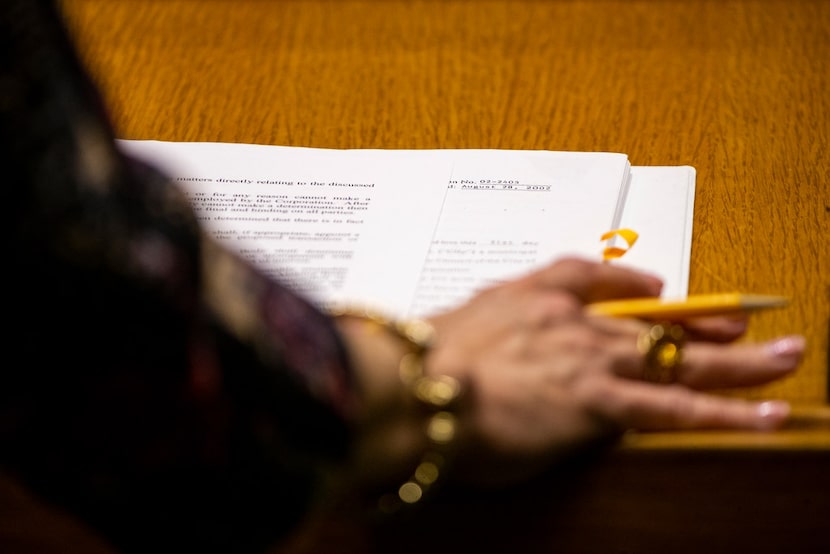
City of Dallas Chief Financial Officer Elizabeth Reich looked over the Fair Park First contract as she addressed the City Council at Dallas City Hall on Oct. 24, 2018. The council members voted unanimously to hand over the maintenance and operations of Fair Park to Fair Park First.
Shaban Athuman / Staff Photographer
The courtship
Darren James was there to explain. A respected architect and a presence on an array of prominent civic boards in Dallas, James had become the face of the nascent nonprofit that would be the middleman between the city and Spectra. The city would be the landlord and Spectra the operator, with the nonprofit supervising and raising funds.
But the relationships had a fatal flaw, overlooked at the time. The newly formed Fair Park First had no money or assets. Its board relied on Spectra to pay for everything — including its lawyers, who represented both entities in drafting the contracts that would govern their marriage.
“I raised the issue, as did another board member,” said Norman Alston, a preservation architect who was a founding member of the nonprofit. “Hey, two organizations doing a contract, maybe we need separate attorneys? And then it was kind of like, well, who’s going to pay for that?”
The city would sign a contract with Fair Park First as the overall manager. The nonprofit would then enter a second contract delegating its duties to Spectra. The city had no direct relationship with Spectra when it came to care, preservation and operation of its most significant historical asset.
Park Board members didn’t see the subcontract that would represent the real governance power at Fair Park. They did, however, grill James and Spectra executives about justifying their low bid, many millions per year lower than Humann’s bare-minimum cost estimate.
A coterie of Spectra suits came to every meeting to assuage them about efficiencies and revenue projections. Their slides touted bowl games and Madonna and Coldplay concerts. The money would flow in, don’t worry, they assured.
“There’s a little bit of the ‘trust me’ factor,” David Leibowitz, the company’s vice president of finance, told the Park Board. “You know who we are.”
The Park Board moved the bid to the City Council, with a recommendation that the nonprofit hire its own staff to be boots on the ground at Fair Park.
A few council members were curious about the subcontract, but how deep their questions went is unclear. City Chief Financial Officer Elizabeth Reich, City Attorney Chris Caso and Park Director Willis Winters all blessed the arrangement.
But Smith, Humann’s ally, sounded a note of caution at the time that would later ring as prophecy.
“Since the zoo is mentioned by the city as a model of privatization, why didn’t we follow that model and have just one contract that all contractual parties sign?” he asked, leaning into the microphone during public comments at a council meeting.
An hour later, the council sealed the deal with Fair Park First that would cause so much heartache.
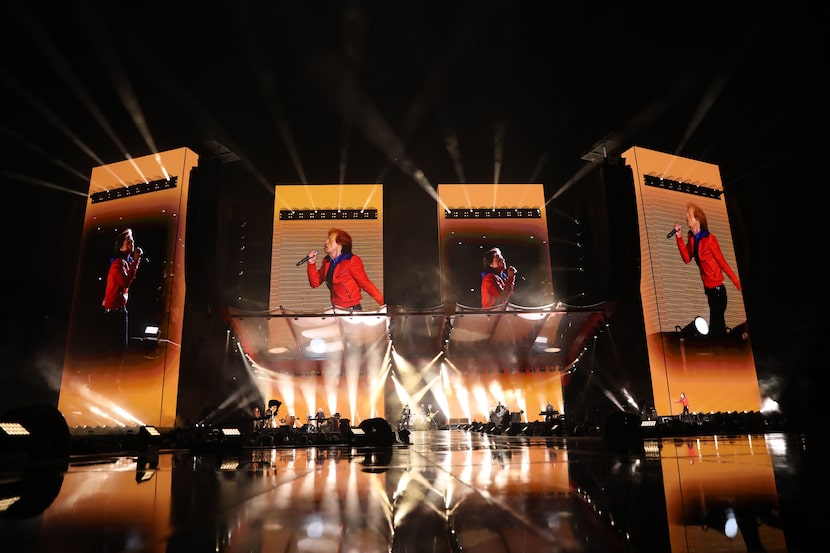
The Rolling Stones played at the Cotton Bowl Stadium on Nov. 2, 2021. The concert had been delayed for almost two years due to COVID-19. (Liesbeth Powers/Special Contributor)
Liesbeth Powers / Special Contributor
The marriage from hell
Fair Park First and Spectra were eager to make a good impression when they were handed the keys in January 2019.
Spectra had brought in general manager Peter Sullivan, who had made a career managing sports hubs, including the Arizona Cardinals stadium. Fair Park First hired Brian Luallen as its executive director. He came from the Queen Mary, a retired ocean liner turned hotel in Long Beach, Calif.
Luallen reported to the Fair Park First board, but Spectra issued his paychecks. The power balance was out of whack from the get go.
By then, the Fair Park First board was close to full strength. The lineup included respected community leaders like Veletta Forsythe Lill, a seasoned fundraiser and former Dallas City Council member.
“I thought we had the right mix of talent and passion and knowledge to do this,” she said.
This honeymoon period brought the NHL’s Winter Classic game to Fair Park, attracting 85,000 hockey fans in January 2020. Around that time, Spectra announced that the Rolling Stones and BTS, the K-Pop sensation, would perform at the Cotton Bowl in May, marking the stadium’s first major concerts since 2004.
Then the pandemic shut everything down. The State Fair was canceled. Event revenue evaporated.
Still, Fair Park wasn’t a ghost town. It hosted major drive-through food distributions, live music, exhibits and fireworks and drone shows. And it became one of the region’s largest COVID-19 mass vaccination sites in 2021.
In what was a bad year, Fair Park also got a dose of good news. Lawmakers revised a law that would allow Dallas to dedicate a share of increased hotel tax collections to six buildings at Fair Park. And the Rolling Stones played at the Cotton Bowl in November.
But even that was tinged with hints of what was to come. The Stones’ crowd was respectable but not a sellout, and the traffic trying to enter Fair Park was “diabolically bad,” according to one person who experienced it.
Traffic for a Coldplay concert the following year was so snarled that the band delayed its opening set by 45 minutes and apologized to the audience.
Spectra, which became Oak View Group after an acquisition, was bringing in major events but seemed to be having difficulty managing them. And Fair Park First was having difficulty working with OVG. The company appeared to be unwilling to address issues related to traffic and groundskeeping, according to multiple people involved at the time.
City Hall kept up with its contractual payments, but OVG blamed the city for underfunding maintenance. The company said this month that it often had to redirect operational funds toward emergency repairs.
“This put an unsustainable strain on the operating budget, leading to operating losses at the Park,” company spokeswoman Teri Washington wrote in an email.
Alarm bells had already started going off at City Hall. As the State Fair prepared to reopen in 2021, a fair official phoned Park Director John Jenkins and Deputy Director Ryan O’Connor and asked them to come to the park.
Jenkins and O’Connor recalled what they saw: overgrown lawns, faulty fountains, flower beds without flowers.
Then Fair Park tenants started complaining about repair requests gone unanswered.
“Our buildings were operable when we turned them over. … All our fountains worked when we turned them over,” Jenkins said.
City Hall launched an audit of three Fair Park events in 2022. According to Jenkins, OVG agreed to show concert records but redacted the numbers, relenting only after lawyers got involved. The park director was furious. This was supposed to be a partner.
The audit didn’t help. It found flaws in the way Fair Park First and OVG monitored revenue from parking, food and merchandise sales. The pair said they would improve controls.
The depth of their troubles began to dawn on some board members at Fair Park First. The nonprofit was responsible for the park, but through its subcontract, it had ceded control to OVG. This was news to board members who recall they reviewed only executive summaries of the contracts.
In 2023, Fair Park First finally hired its own legal counsel.
Then a whistleblower’s allegation pushed the partnership over the cliff.
Fair Park’s Esplanade Fountain, redone in 2009 for $13 million, photographed in May. Park Department Director John Jenkins said at the time that repairs were expected to cost “in the hundreds of thousands.” The pool has since been replenished in time for the State Fair.
DallasNews.com Staff
Irreconcilable differences
Fair Park First investigated a report in 2024 that OVG may have used donations meant for capital projects on day-to-day operations. OVG denied wrongdoing.
Many were surprised to learn that the subcontract between the nonprofit and its operator — the agreement that had largely escaped scrutiny — gave OVG the power to open and access bank accounts on behalf of Fair Park First.
The whistleblower’s allegation set off a dizzying series of events. James, the board president, tried to oust Luallen. The board reversed James’ decision and put Luallen on leave, and then reinstated him.
Soon after, James quit. Four other board members also stepped down last summer. Luallen tendered his resignation weeks later.
James, who had responsibility for ensuring Fair Park First’s oversight role, didn’t respond to multiple requests for comment for this story.
By fall, a divorce seemed imminent. The accounting review commissioned by Fair Park First found $5.7 million in donor funds had been misallocated. OVG denied any misuse and said its expenditures were approved or directed by Luallen and James. Luallen had previously said that he would authorize payments without access to account statements and balance sheets.
In the end, the privatization that was dreamed up and hashed out over years of tortured meetings was undone with a letter. In June, City Manager Kimberly Bizor Tolbert and Jenkins, the park director, wrote Fair Park First to end the contract.
No one is going quietly. Fair Park First has maintained a cordial relationship with city staff, but its legal counsel is trading combative letters with OVG. Fair Park First wants the company to pay back the $5.7 million it says was misspent, while OVG says it is owed more than $2 million in fees.
OVG and City Hall are also at loggerheads. The company sent a letter this month to groups planning events at Fair Park saying their event contracts were canceled. Jenkins accused the company of trying to sabotage the city, a charge OVG denied. The park director said he would deploy security to ensure OVG left the premises by the Sept. 16 deadline, and he made good on that vow. Three city marshal vehicles ringed Big Tex Circle on Monday, when OVG staff handed back the keys to their office in the Tower Building.
Amid the bitter split, however, all three entities — even OVG — agree on one thing: The contracts set them up to fail.
In retrospect, it is easy to see the problems with the process that got us this deal. The qualifications and experience of the proposed nonprofits deserved more scrutiny, as did the bidders’ promises. Former City Council member Philip Kingston, who pushed for a competitive bid in 2016, now describes the Spectra bid as “so low as to not be credible.”
The most painful lesson seems obvious today. City Hall needed a direct line of accountability to the company that was going to manage one of its most precious assets.
It’s too easy to lay this all at OVG’s feet. The company may have underestimated Fair Park’s complexities and overestimated its ability to raise revenue, but city officials should have pushed away their wishful thinking and recognized the bid was unrealistically cheap. They should have followed the model of previous contracts: direct oversight of the group running day-to-day operations. They should have demanded one agreement, not two.
Fair Park First should have insisted on independence and asserted itself from the start.
Something else was lost along the way, too. The city lost sight of what has made the zoo and arboretum deals so successful. They were structured and managed by groups that had years, sometimes decades, of investment in those institutions. They had a track record, and their devotion wasn’t just to the balance sheet. It was about the success of the mission they served.
Dallas is a city often enamored by easy answers. Many of us were eager to accept an offer that was too good to be true.
At Fair Park, we got what we paid for.
We welcome your thoughts in a letter to the editor. See the guidelines and submit your letter here.
If you have problems with the form, you can submit via email at letters@dallasnews.com
